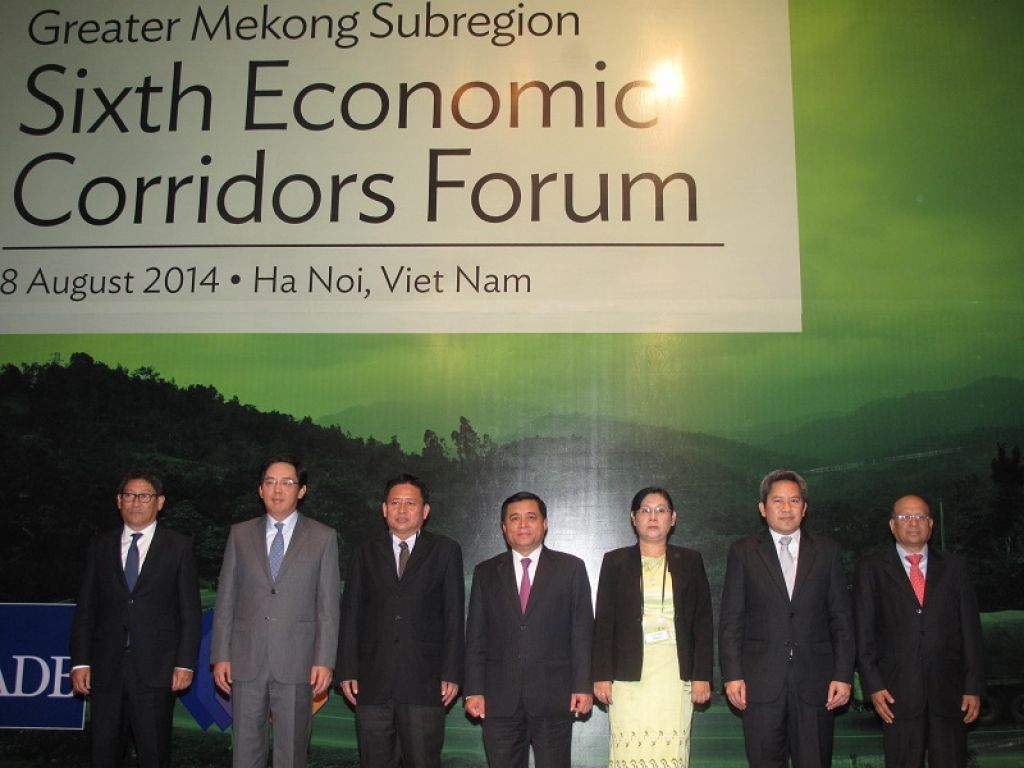
(Left to Right) Sok Chenda Sophea, Minister Attached to the Prime Minister, Secretary General Council for Development of Cambodia; Hong Xiao Yong, PRC Ambassador to Viet Nam; Somchith Inthamith, Vice Minister, Ministry of Planning, Lao PDR; Nguyen Chi Dung, Vice Minister, Ministry of Planning and Investment, Viet Nam; Lei Lei Thein, Deputy Minister, Ministry of National Planning and Economic Development, Myanmar; Porametee Vimolsiri, Deputy Secretary General, National Economic and Social Development Board, Thailand; and Bindu Lohani, Vice-President, Knowledge Management and Sustainable Development, ADB. Photo: ADB.
GMS Economic Corridors Must Yield More Jobs and Investment, Forum Hears
HA NOI, VIET NAM (8 August 2014) – The Greater Mekong Subregion (GMS) needs to ensure that economic corridors yield benefits in terms of trade, investment, and jobs, participants at the 6th GMS Economic Corridors Forum (ECF) heard today.





